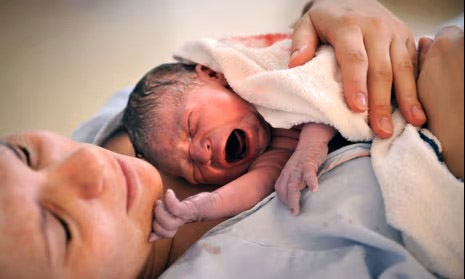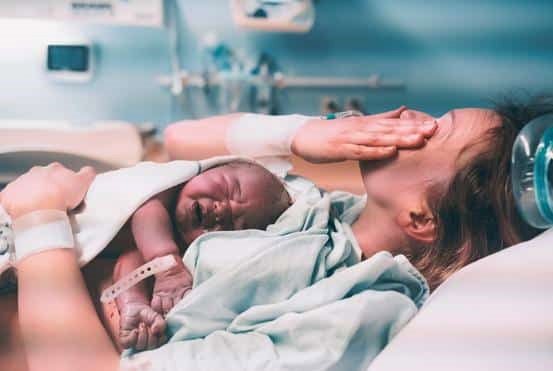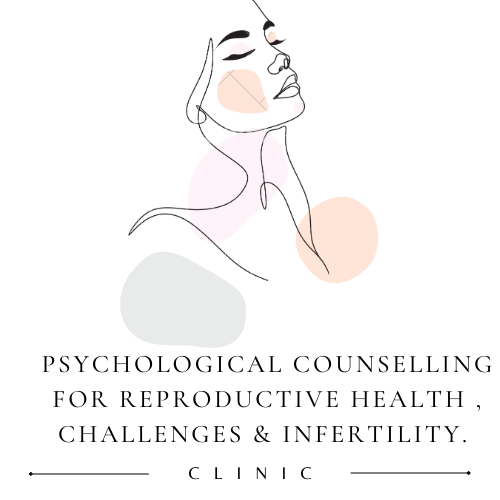
Pregnancy and Mental Health: A Crucial Connection
Pregnancy is a profound and transformative experience, but it can also be a time of immense emotional and psychological strain. As an expectant mother/father, your mental health deserves just as much attention as your physical well-being. In fact, the two are inextricably linked, and addressing your mental health during this pivotal time can have a profound impact on your overall pregnancy journey.
Navigating the hormonal changes, physical discomforts, and the anticipation of a new life can be overwhelming. It's crucial to acknowledge the emotional challenges you may face and seek the support you need. Whether it's anxiety, depression, stress or simply the need to process the myriad of emotions, speaking with a mental health professional can provide invaluable guidance and coping strategies.
Remember, you are not alone. Many women experience mental health challenges during pregnancy, and there is no shame in reaching out for help. By prioritizing your mental well-being, you are not only caring for yourself but also laying the foundation for a healthier, more fulfilling pregnancy and postpartum experience.

At PCRH, we have a specialized team of medical and allied health doctors (dieticians, therapists etc) , which helps you navigate your pregnancy with ease and understanding.

I. Navigating The First Trimester: Prioritizing Mental Health along with Physical Health
The first three months of pregnancy can be an exhilarating yet overwhelming experience. As your body undergoes remarkable changes, it's crucial to prioritize your mental well-being during this pivotal time. From managing morning sickness to navigating the emotional rollercoaster, taking proactive steps to support your mental health can make all the difference. We suggest that the following may help you in your 1st trimester:
Acknowledge the Emotional Shifts
Pregnancy hormones can trigger a wide range of emotions, from elation to anxiety. It's important to recognize that these feelings are a normal part of the journey. By openly discussing your experiences with your healthcare provider or a trusted support system, you can develop healthy coping mechanisms to navigate the emotional ebbs and flows.
Prioritize Self-Care
Engaging in self-care activities, such as gentle exercise, mindfulness practices, and adequate rest, can help you maintain a sense of balance and resilience. Remember, caring for your mental health is just as important as caring for your physical well-being during this transformative time.
Seek Professional Support
If you find yourself struggling with persistent feelings of depression, anxiety, or other mental health concerns, don't hesitate to reach out to a mental health professional. They can provide the guidance and support you need to ensure a healthy start to your pregnancy journey.
By proactively addressing your mental health in the first trimester, you can lay the foundation for a more positive and empowered pregnancy experience. Embrace the changes, celebrate the milestones, and don't be afraid to ask for help when you need it.
II. The Second Trimester Pregnancy and Mental Health: A Crucial Consideration
The second trimester, spanning weeks 13 to 27, is often hailed as the "golden period" of pregnancy. While the nausea and fatigue of the first trimester may subside, new challenges can arise that impact your mental well-being. Hormonal fluctuations, body image concerns, and the increasing physical demands of pregnancy can all contribute to heightened anxiety, mood swings, and even depression.
It's important to recognize that mental health struggles during pregnancy are common and treatable. By proactively addressing these concerns, you can ensure a more positive and fulfilling journey towards parenthood. Seek support from healthcare providers, join prenatal support groups, and engage in self-care practices that nourish your mind and body.
We suggest our clients at PCRH: To Remember, your mental health is just as vital as your physical health during this transformative time. Prioritize your well-being, and don't hesitate to reach out for the resources and support you need to navigate the second trimester with confidence and resilience.
III. The Third Trimester: A Critical Time for Maternal Mental Health

As an expectant mother enters the third trimester of pregnancy, it's crucial to prioritize mental health. This final stage can bring a whirlwind of emotions, physical changes, and heightened anxieties - all of which require attentive care.
Recognizing the importance of maternal mental wellness during this pivotal period is key. Women may experience increased mood swings, physical discomfort, threats of delivery or sudden mishappening, fear of pain/labor, sleep disturbances, and feelings of overwhelm as the due date approaches. Proactively addressing these challenges can help ensure a smoother transition into motherhood.
Healthcare providers play a vital role in supporting women through the third trimester. Regular check-ins, open communication, and access to mental health resources can empower expectant mothers to navigate this transformative time with greater ease and confidence. By fostering a holistic approach to prenatal care, we can help expectant mothers feel prepared, supported, and empowered.
At PCRH, we consider that your third trimester is a critical juncture that deserves our utmost attention. With the right mindset and professional guidance, women can approach this milestone with a renewed sense of strength and resilience, setting the stage for a positive postpartum experience.
IV. The Child birth, Delivery experiences & mental health

Childbirth is a life-transforming event often followed by a time of heightened psychological vulnerability in the mother as well as her spouse. There is growing recognition of the importance of obstetrics aspects in maternal wellbeing with the way of labor potentially influencing psychological adjustment following parturition or failure thereof.
Birth trauma, or a traumatic childbirth experience, refers to the birthing person’s experiences of interactions and/or events directly related to childbirth that cause overwhelming and distressing emotions, leading to short- and/or long-term negative impacts on the birthing person’s health, wellbeing, and relationships. A leading factor contributing to birth trauma is the birthing person's perception or experience of poor interpersonal care and/or communication.
FACTS on : Birth Trauma and Maternal Mental Health
- 1 in 3 birthing people report feeling traumatized by their childbirth experience.
- 1 in 5 birthing people report experiencing some form of mistreatment /coercion during labor, pregnancy or childbirth.
- Birth trauma can lead to a range of Maternal mental health conditions (MMH), including :-
- Post partum anxiety disorder
- Post partum mood disorders (e.g. Depression, Dythymia, Bipolar disorder)
- Post partum Phobias
- Post Partum OCD
- Puerperal psychosis
- Post partum attachment disorder in infant-mother bonding
- Post partum post-traumatic stress disorder (PTSD).
- Eating disorders in pregnancy and post partum period
Birth trauma depends on the subjective experience of the event. Two people may be present at the same event but may have very different experiences.
“What a mother perceives as birth trauma may be seen quite differently through the eyes of obstetric care providers, who may view It as a routine delivery and just another day at the hospital.” — Cheryl Tatano Beck
Factors Contributing to Birth Trauma

Physical Factors
Significant physical injury, or threat / fear of injury or death, to the birthing person or to the baby. This includes obstetric interventions and maternal, infant, or postpartum complications.
Examples:
- Emergency C-section or instrumental vaginal delivery
- Experience of overwhelming pain or the denial of pain relief
- 3rd or 4th degree perineal lacerations or tears
- Unwanted or unannounced episiotomy
- Complications with anesthesia
- Manual removal of placenta
- Urinary catheterization
- Unplanned hysterectomy
- Hemorrhage
- Preeclampsia
- Stillbirth/ infant death
- Premature birth
- Fetal distress or harm to baby
- Separation from infant in NICU
Psychological Factors
Threats generated by reproducing earlier psychological states (prolonged fear, terror, etc.), related to previous personal experience and/or intergenerational trauma.
Examples:
- A birthing person who experienced sexual trauma earlier in life relives the trauma during childbirth.
- A woman who was hospitalized for severe sciatica 20 years earlier relives the experience when the epidural needle she receives during labor hits a nerve.
Care-Related Interpersonal Trauma
Threats to psychological safety brought about by negative interactions with providers and/or the maternity care system itself.
Examples:
- Feeling disrespected by health care providers.
- Feeling abandoned or alone.
- Feeling pushed, rushed, coerced, not seen or heard.
- Feeling that embodied knowledge is disregarded.
- Being yelled at, ignored, scolded, or threatened.
- Poor communication (lack of proper translation, spotty and inadequate conveyance of important information, partial informed consent, un/misinformed by healthcare personnel, etc.)
- Lack of agency; loss of control and participation in decision-making.
- Medical providers talking about the birth as if the patient were not present.

Coping Well With Pregnancy With PCRH
Early identification and treatment of psychological and psychiatric disorders in pregnancy can prevent morbidity in pregnancy and postpartum with the concomitant risks to mother , baby and the new family. Maternal , Paternal & Family mental health screening are essential to timely detect severity of psychological issues and plan needful interventions.
Interventions such as holistic care, psychotherapy and pharmacotherapy should be considered as per expert’s advice. At PCRH, the Reproductive Mental Health program offers timely consultation, education, referrals and intervention services through online and offline mode to pregnant couples seeking help.
Expert talks
- How To Handle Mental & Emotions During Your Pregnancy by dr Ansha patel
https://youtu.be/D_J6riE6JJ4?si=1P8l1nCG8TeVvmtO - How you can support your partner during pregnancy
https://youtu.be/ZSLbimKnu0E?si=6EO55Sm5wx-j04rp
The session was very informative, meaning of the psychological adaptation was explained very well and even the the stages of pregnancy and all the changes that a women go through was explained in detail. I really liked it and would look forward to more such sessions on mental health during different stages of a women's life.
Thankyou Dr.Vani for organising this! Thanks to Dr.Ansha for the valuable insights on various psychological aspects associated with pregnancy and possible ways to address them.
Dr anshas way of treatment n nature is really good. Her depth of knowledge is unbeatable. Guys don't feel hesitation n seek her help.
Resources
- https://www.who.int/teams/mental-health-and-substance-use/promotion-prevention/maternal-mental-health
- https://womensmentalhealth.org/specialty-clinics-2/psychiatric-disorders-during-pregnancy/
- https://bcmj.org/articles/psychiatric-disorders-pregnancy.
- Birth Trauma and Maternal Mental Health Fact Sheet — Maternal Mental Health Leadership Alliance: MMHLA
